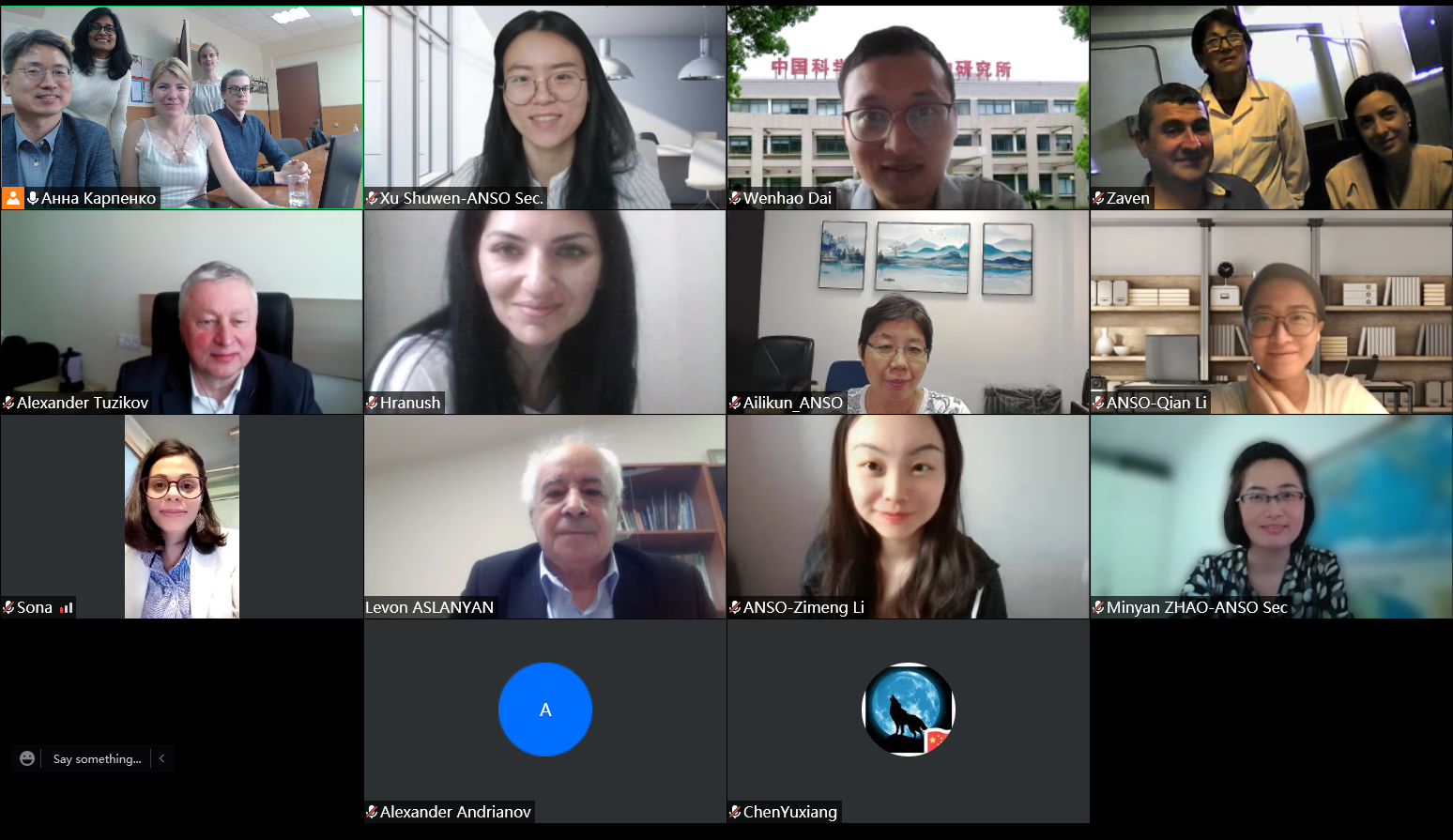- HOME
- ABOUT
- PROGRAMS
- EVENTS
- NEWS
- DATABASE
- PUBLICATIONS
- MEMBERS & NETWORKS
- BRANCHES
- OPPORTUNITIES

An ANSO Project Hosted by A Research Team of Belarus Kicked Off
08 06, 2022
The kick off meeting of ANSO Collaborative Research Project entitled “Application of Deep Learning, Molecular Modeling and Biomedical Assays to Develop Small Drug-like Compounds as Potential SARS-CoV-2 Main Protease Inhibitors” (ANSO-CR-PP-2021-04) was held online on May 27, 2022. Hosted jointly by the United Institute of Informatics Problems (UIIP) of the National Academy of Sciences of Belarus, Institute of Bioorganic Chemistry of the National Academy of Sciences of Belarus, Shanghai Institute of Materia Medica of the Chinese Academy of Sciences and Institute of Molecular Biology of the National Academy of Sciences of Republic Armenia, the half-day meeting was attended by 18 participants from all project teams involved and the ANSO secretariat.
Dr. Alexander Tuzikov from UIIP, Principal Investigator (PI) of this project, presented the research background, objectives, technical issues and work plan of the project. He and his colleague Dr. Alexander Andrianov also introduced recent achievements made by their team on virtual screening, molecular modeling and deep learning technologies for anti-SARS-CoV-2 drug development. The ANSO Secretariat gave a brief introduction on the mission and mandate of the organization and the programs and projects it supports.

Prof. LIU Hong and Dr. DAI Wenhao from the Shanghai Institute of Materia Medica of the Chinese Academy of Sciences presented their major success in developing a new kind of inhibitor for SARS-CoV-2 main protease which is currently undergoing clinical trials. Prof. Zaven Karalyan from the Institute of Molecular Biology of National Academy of Sciences of Republic Armenia talked about their main research in the Laboratory of Cell Biology and Virology. As an invited guest, Dr. Eui-Jeon Woo from Korea Research Institute of Bioscience and Biotechnology gave a very interesting talk on developing therapeutic antibodies based on protein design.
This ANSO Collaborative Research Project aims to propose and explore new approaches and ways to address the global challenges posed by the SARS-CoV-2. It intends to apply deep learning and molecular modeling tools to identify novel potent inhibitors of SARS-CoV-2 main protease (MPro) that plays important role in mediating viral replication and transcription followed by their computational validation, synthesis and biomedical assays. The project is scheduled for three years from 2022 to 2024.

Source: Dr. Alexander Tuzikov, United Institute of Informatics Problems (UIIP) of the National Academy of Sciences of Belarus